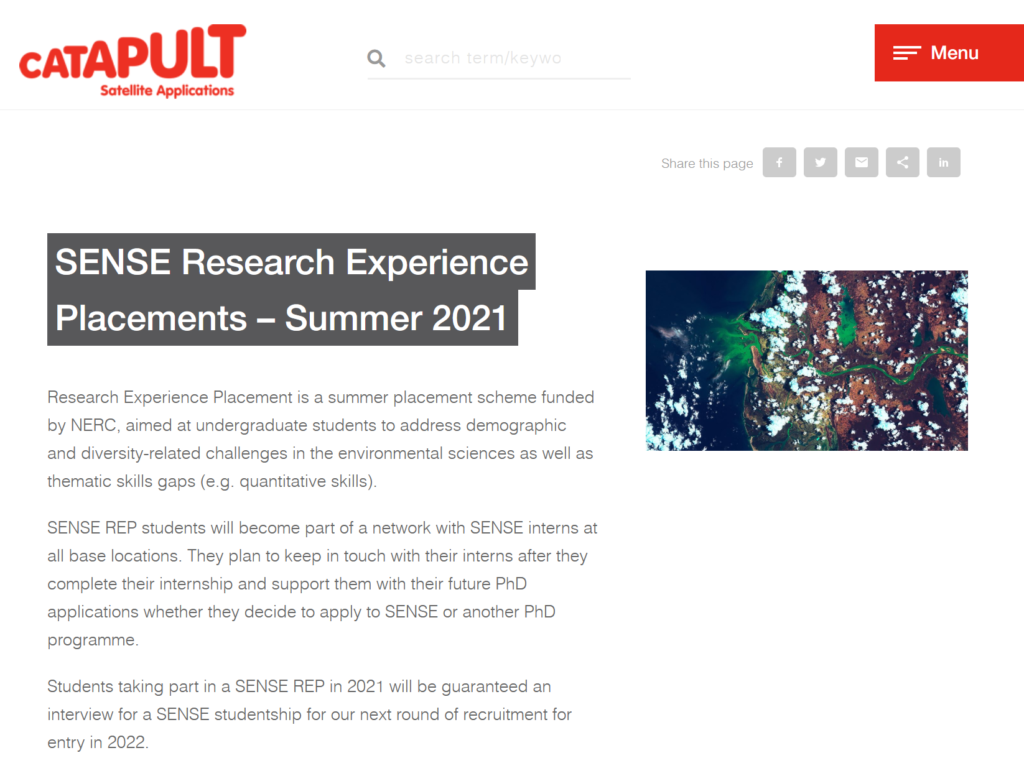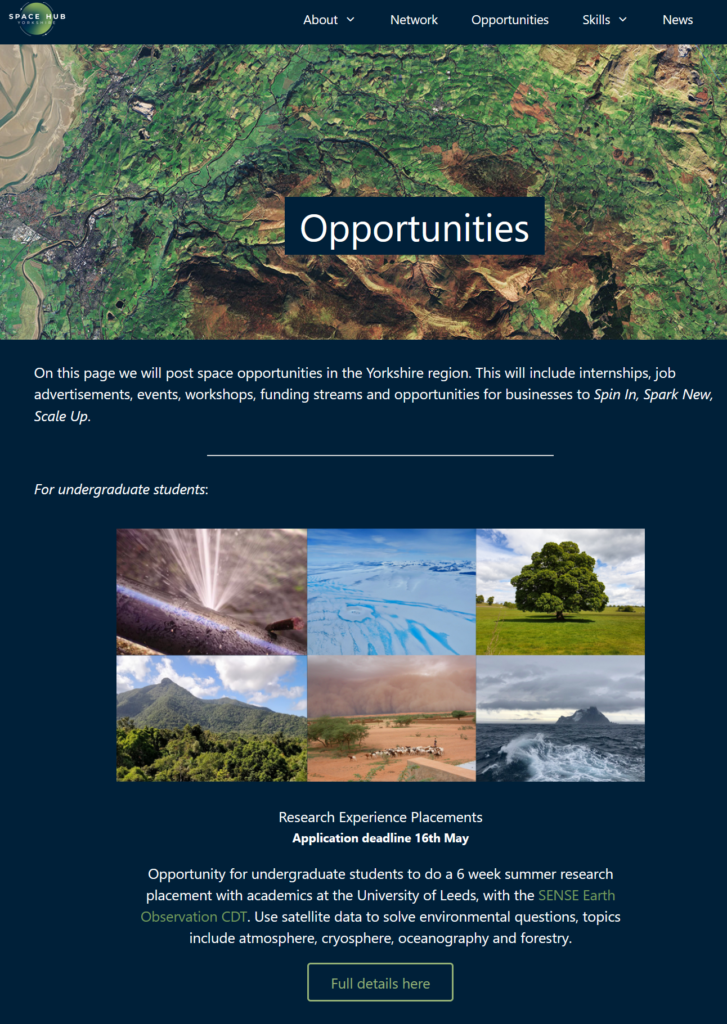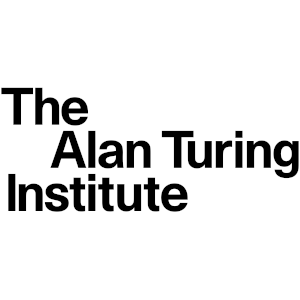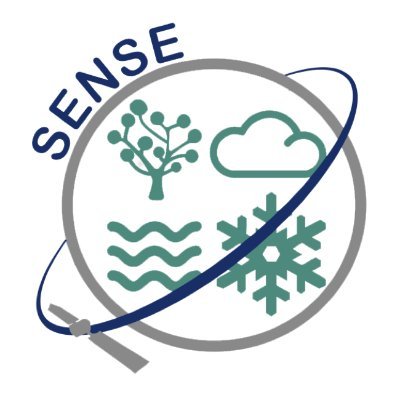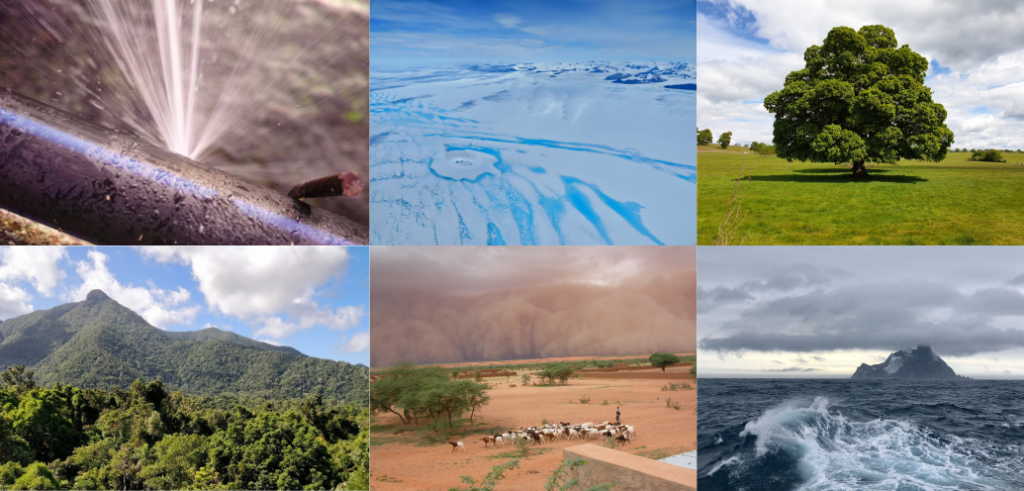
Deadline: 19th September 2021
We are very happy to announce a call for PhD project proposals, in the final round of the SENSE Earth Observation CDT recruitment, for studentships starting October 2022.
The key facts are:
- All PhD projects will focus on using Earth Observation data, with many projects also expected to make use of advanced computer techniques such as machine learning
- 16 PhD students will be funded in this cohort, we will advertise ~32 projects
- Note, in order to ensure we maintain a good success rate for the advertised projects, not all submitted PhD proposals will be advertised.
- To encourage collaboration across the SENSE community, all supervisory teams must have co-supervisors from at least 2 institutes (Leeds, Edinburgh, BAS, NOC)
- We can provide support in linking you up
- We welcome additional co-supervisors from other non-SENSE institutes
- All students will be registered at the Universities of Edinburgh or the University of Leeds (50/50 split)
- All students will benefit from attending a comprehensive EO training programme in their first year
- All students will undertake a 3-month industry placement
- We have >20 CASE partners available for matching with academics, and your own industry connections are welcomed
- We are running academic & industry virtual mixer events on the Tue 24th August to help connect academics in different departments and institutes, and industrial partners, to attend please register your interest here
- Project proposal submission deadline is the 19th September 2021
- To submit a PhD proposal for the October 2021 cohort, fill out this form
SENSE’s recruitment committee will select ~32 of the best projects that align with SENSE’s specific remit to advertise. For further advice and top tips about how to submit a good SENSE PhD proposal, and the full recruitment schedule, please see ‘SENSE PhD proposal writing tips’ below
If you have any questions or if you’d like any support with your project proposal please get in touch with Ruth Amey at Leeds ([email protected]) or Eleanor Graham at Edinburgh ([email protected] ).
We really look forward to hearing from you.
The SENSE recruitment committee
SENSE PhD proposal writing tips:
SENSE has a recruitment committee with members from its four institutes (Edinburgh, Leeds, NOC and BAS) who will select the projects to advertise in October. Only the best projects that align with SENSE’s ethos will be advertised. Please ensure that all criteria are met and that project descriptions have sufficient detail and give tangible outcomes.
Successful project proposals have:
- High quality science that is clearly described (compulsory)
- Strong focus on Earth Observation (compulsory) and advanced data science techniques (strongly encouraged)
- Environmental science as subject area (compulsory)
- Multi-institute supervisory teams (compulsory)
- We can help match supervisors, please get in touch and attend our mixer event
- CASE partner (strongly encouraged)
- We can help match industry partners, please get in touch and attend the mixer event
- Diverse supervisory teams (strongly encouraged – let us know if you would like support with this, again we are very happy to help!)
Overall SENSE recruitment schedule:
- Academic and industry virtual mixer events – Tue 24th August
- Deadline for academics to submit PhD project proposals – 19th September 2021
- SENSE PhD projects advertised online – 11th October 2021
- PhD applications close – 9th January 2021
- PhD offers made – from late February / early March
- Students start – 1st October 2022
Submit a PhD proposal:
- To submit a PhD proposal for the October 2022 cohort, fill out this form
- Academics may submit one first-supervisor proposal each year (they may be second supervisor on others)
- You will need the following information:
- Project title
- Lead supervisor names and organisation
- Co-supervisor names and organisations
- Organisation at which the student will be based (Edinburgh, Leeds, NOC and BAS) and registered (Leeds or Edinburgh only)
- Industry partner name (if known)
- PhD project description (1 page), including:
- Scientific background and motivation
- Aims and objectives of the PhD project
- Methodology, including clear description of Earth Observation datasets and techniques used, and details of any advanced computer techniques




